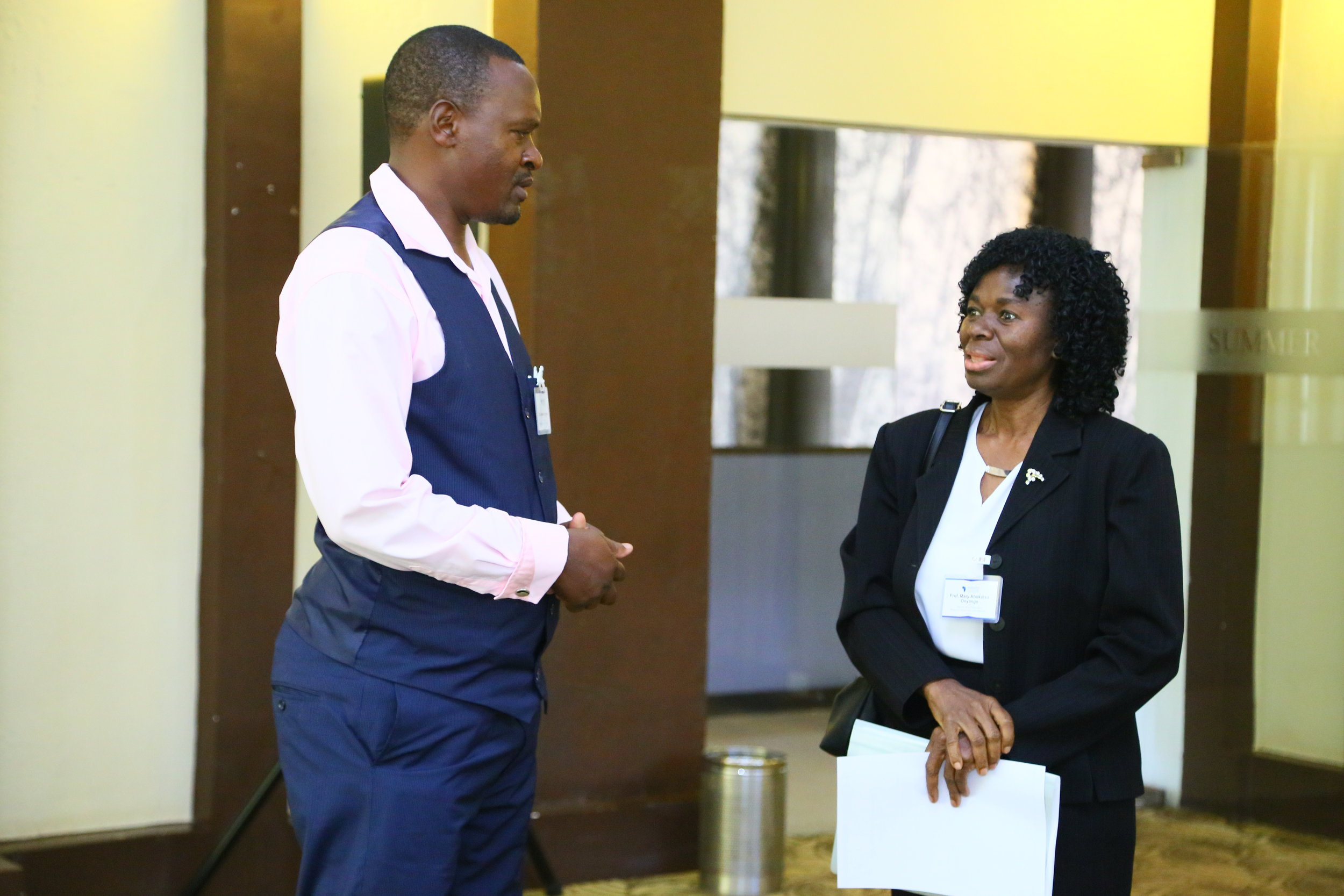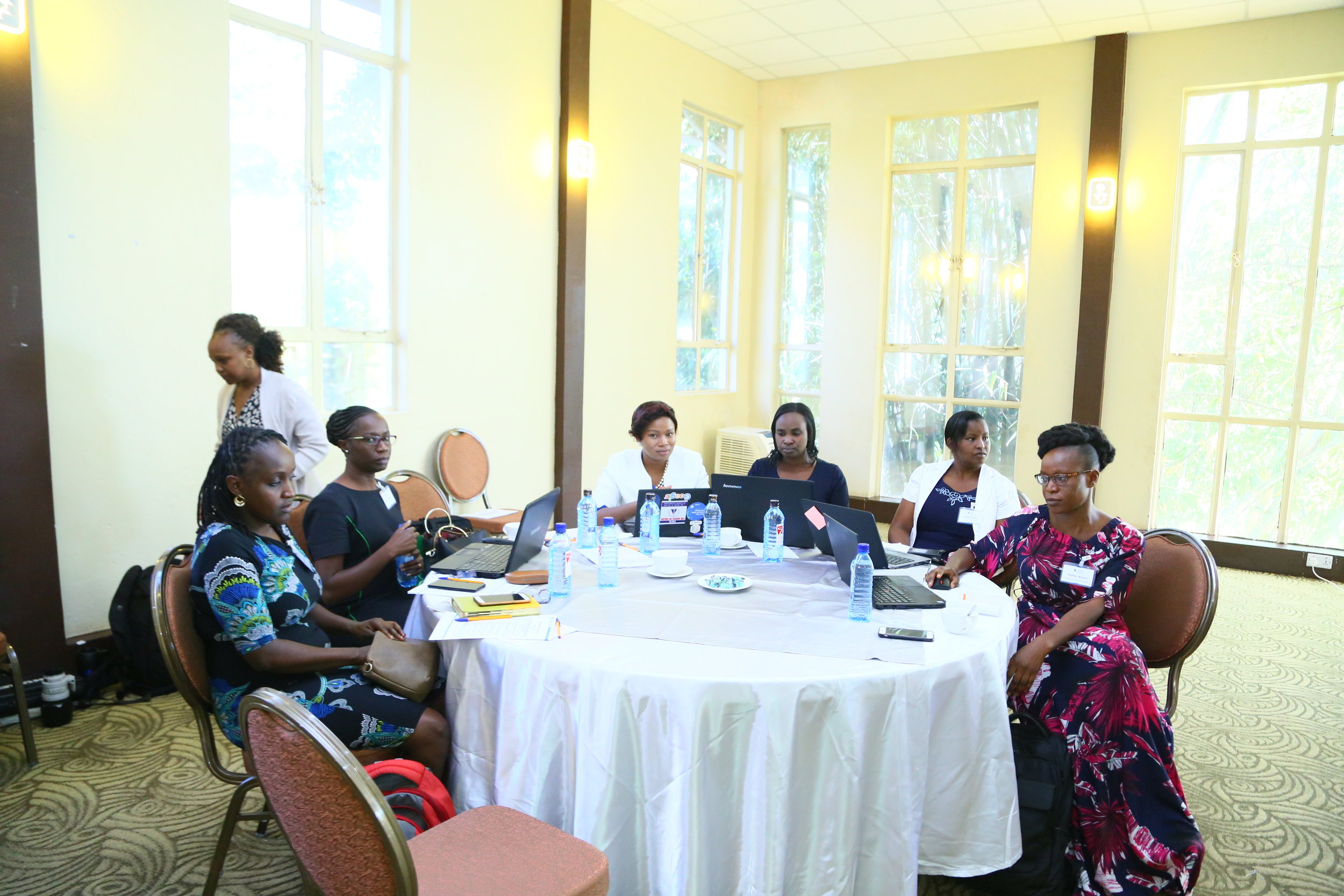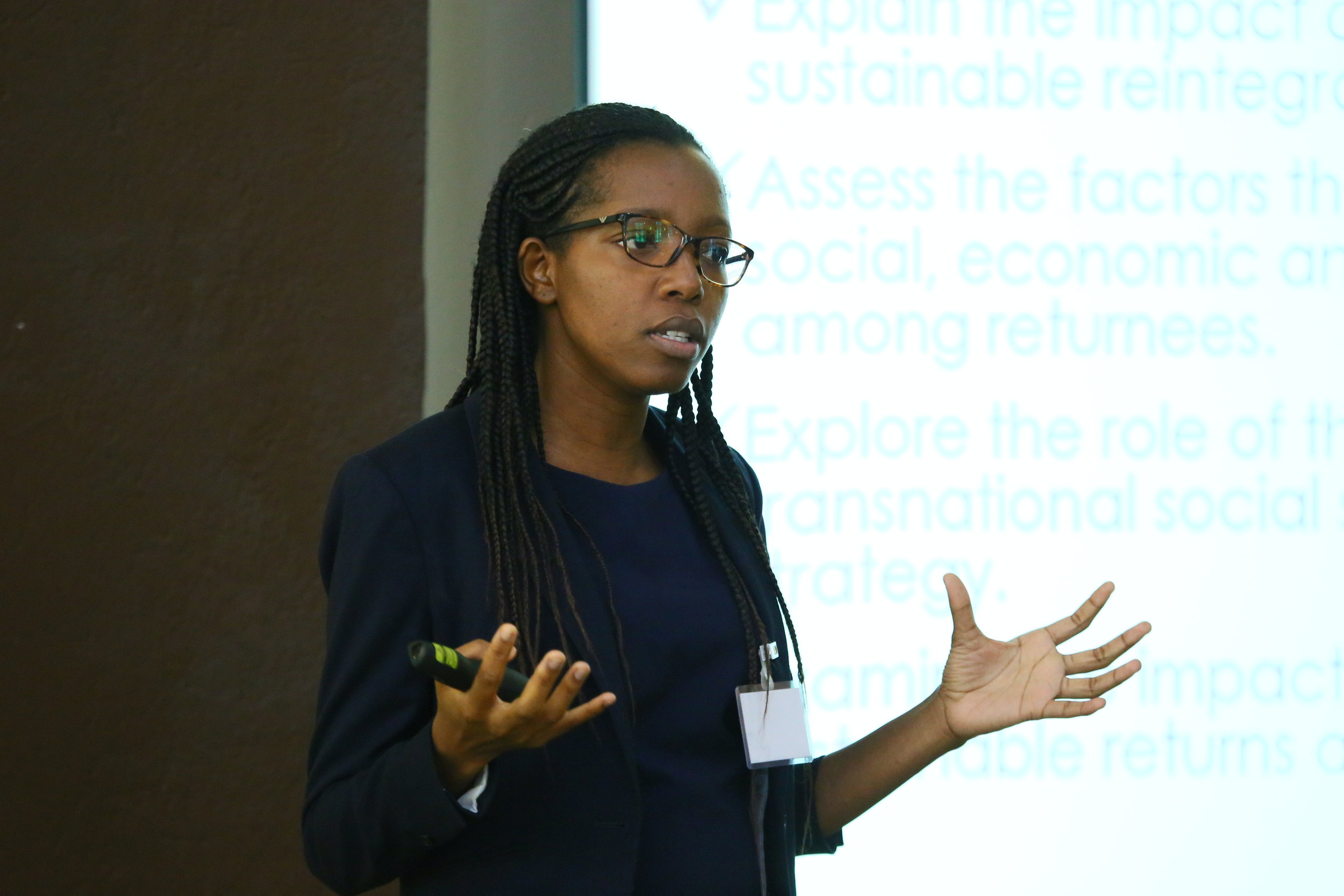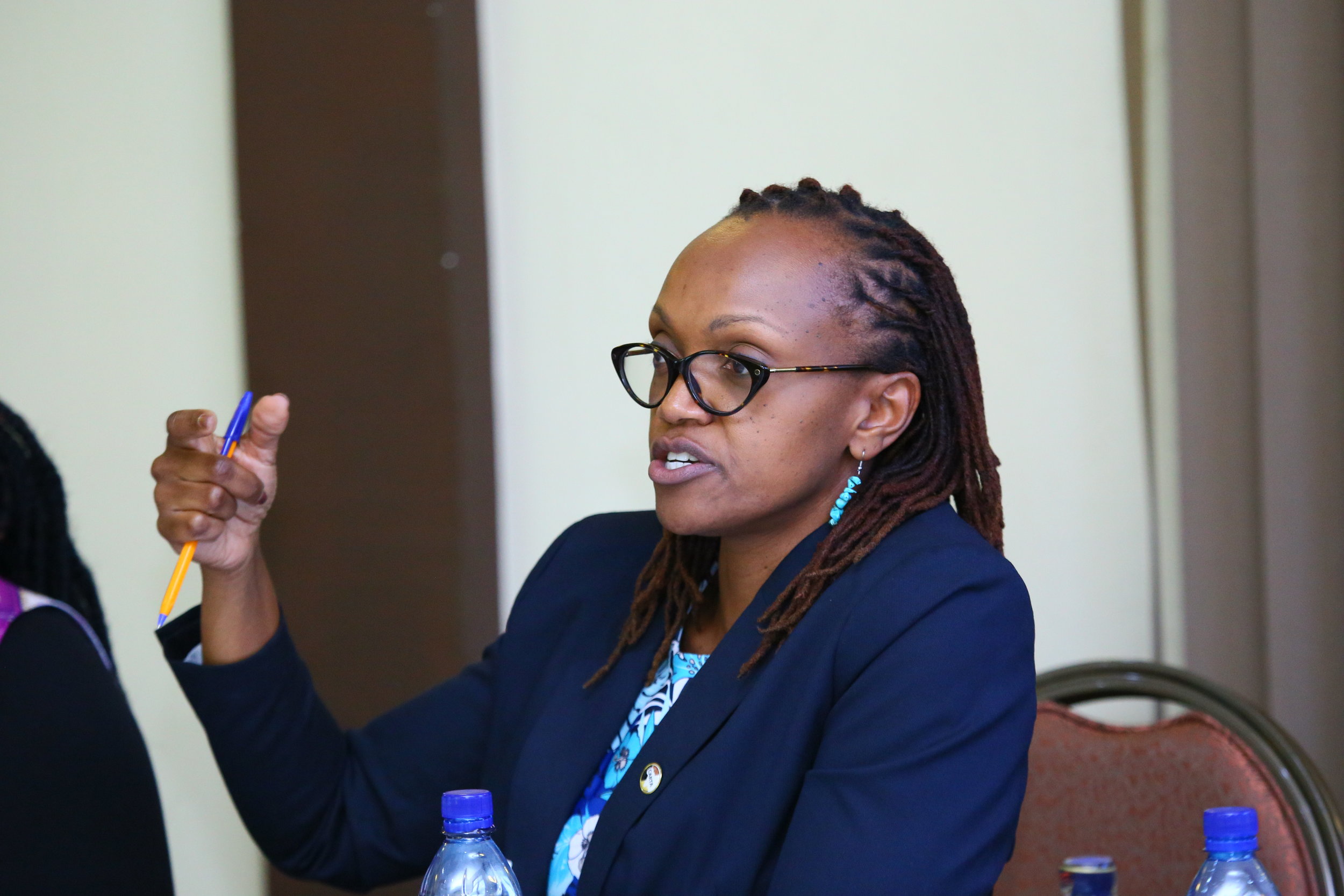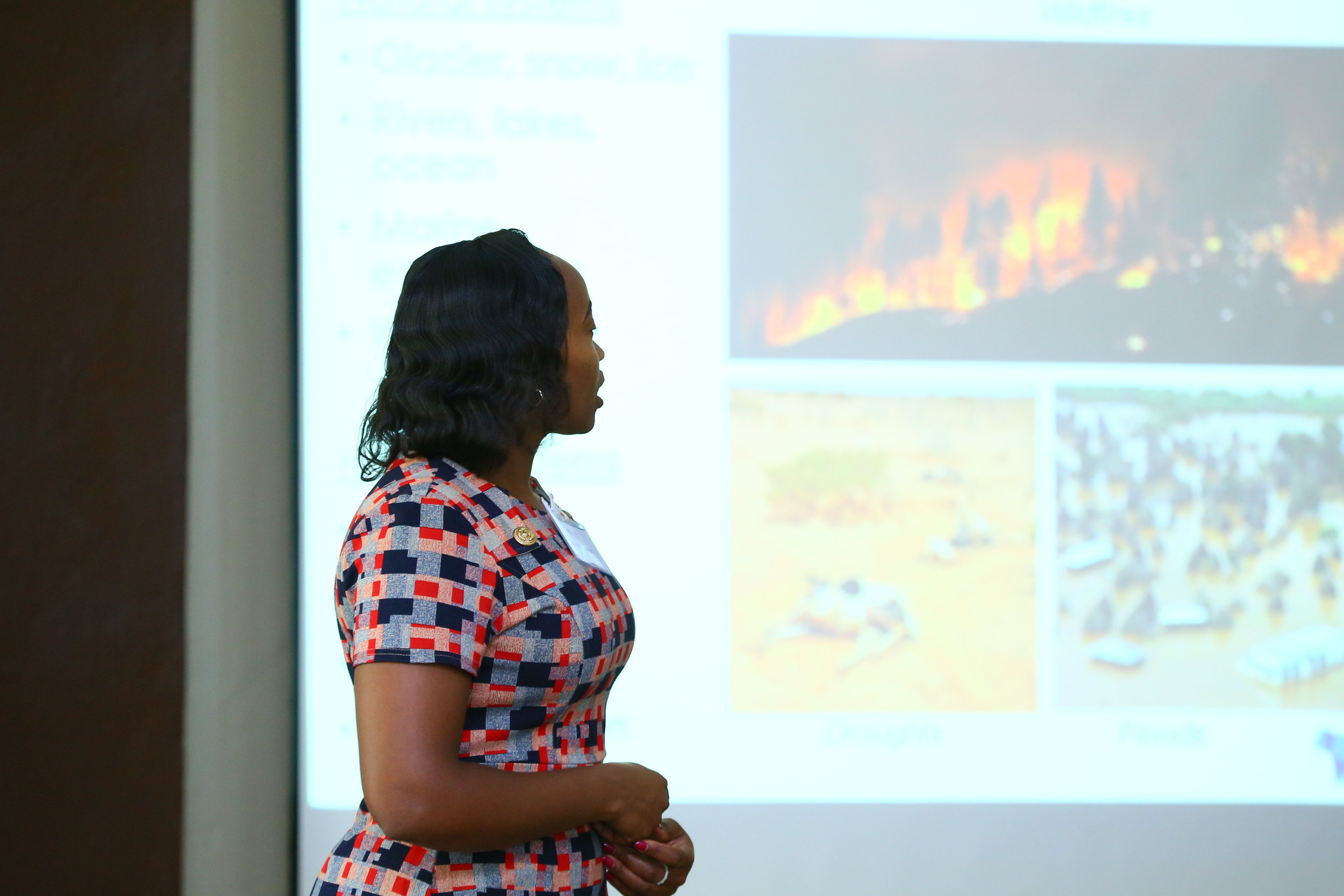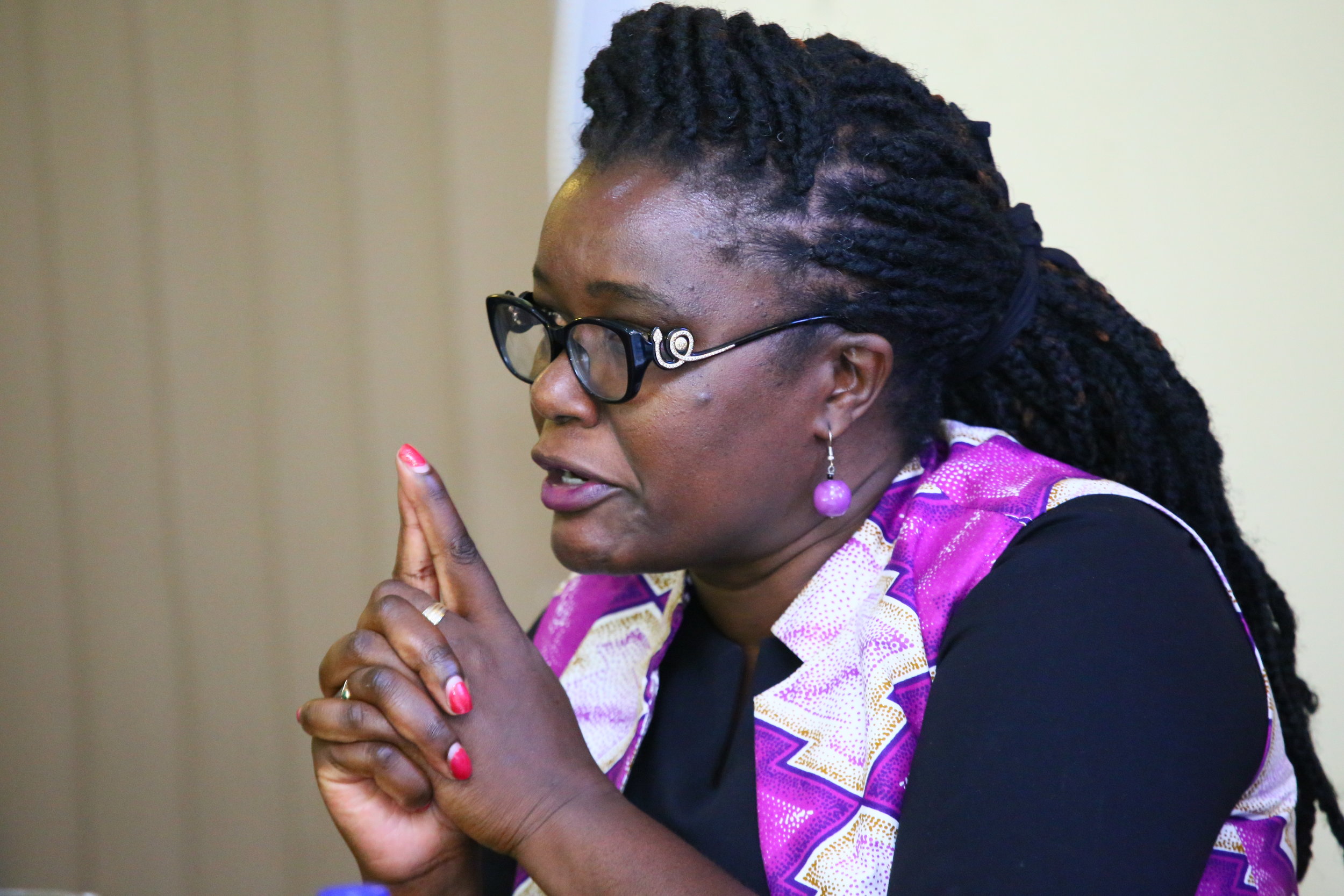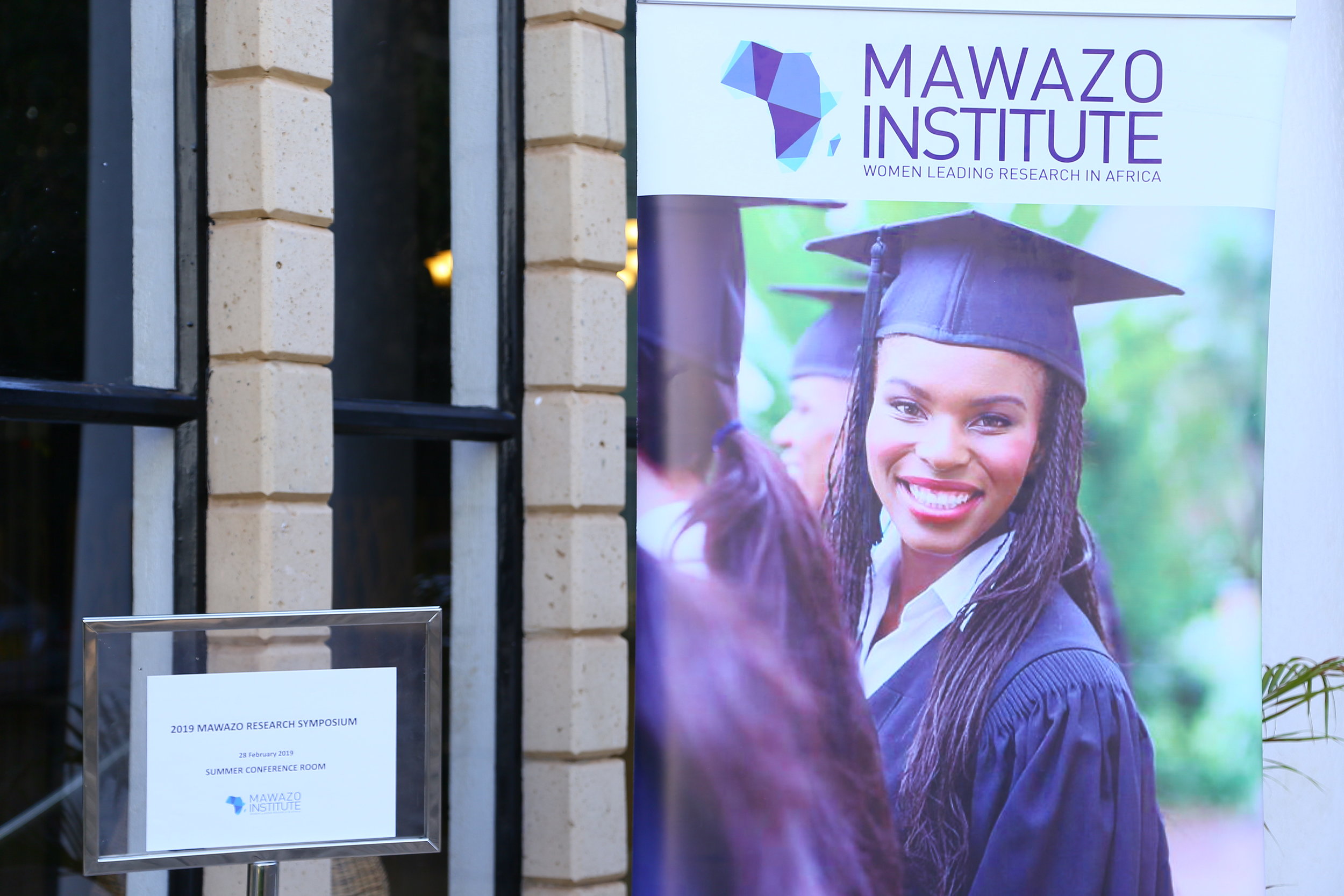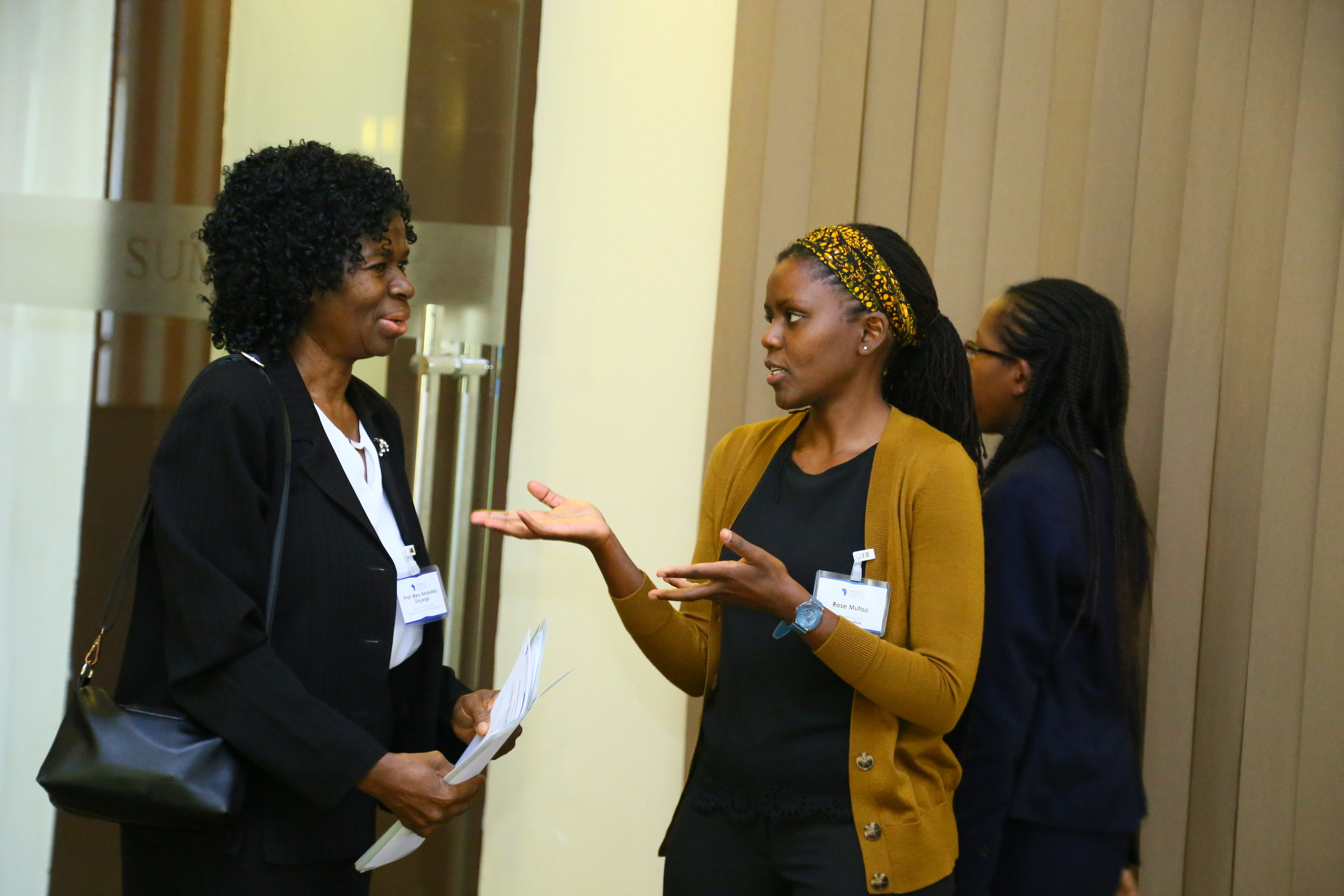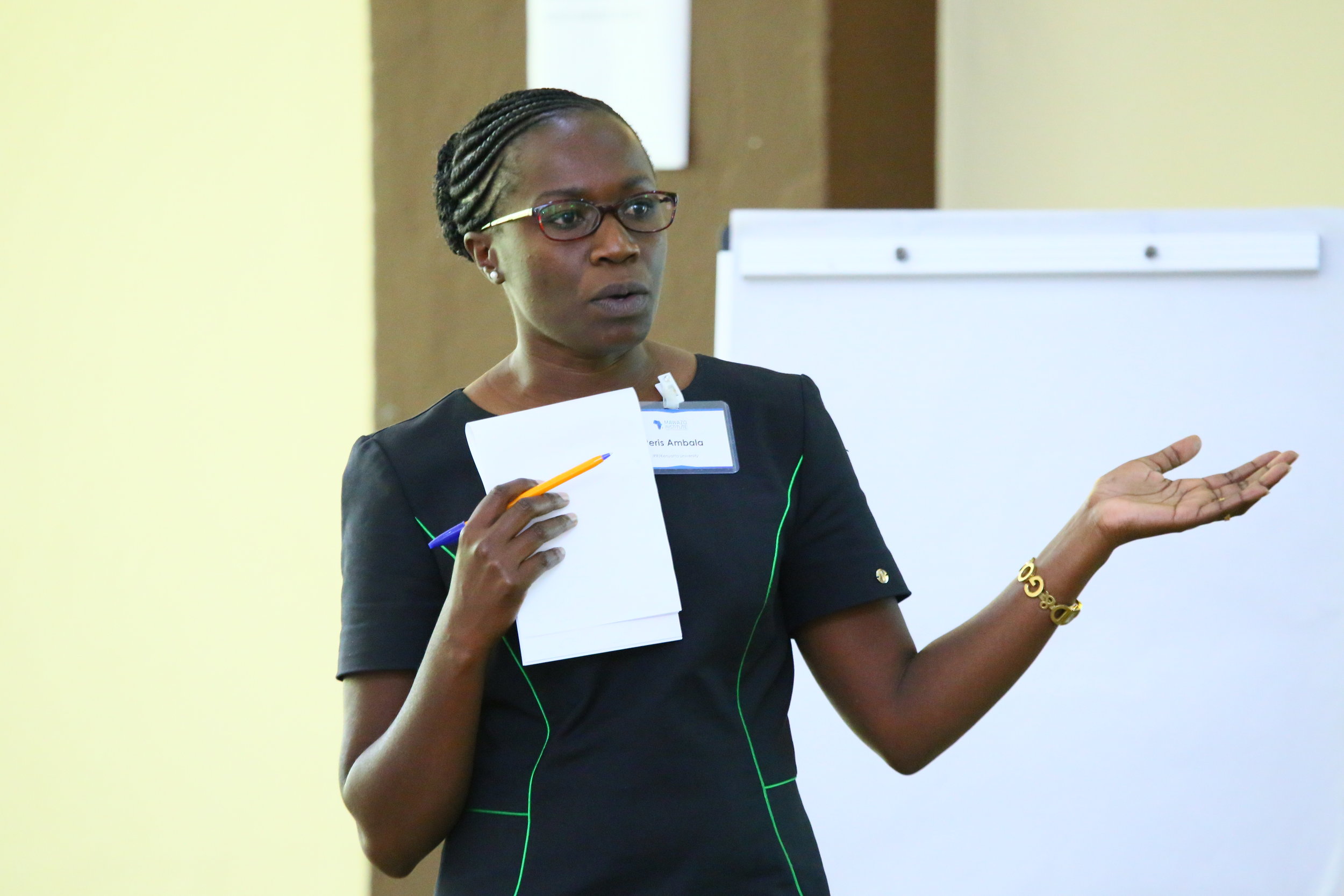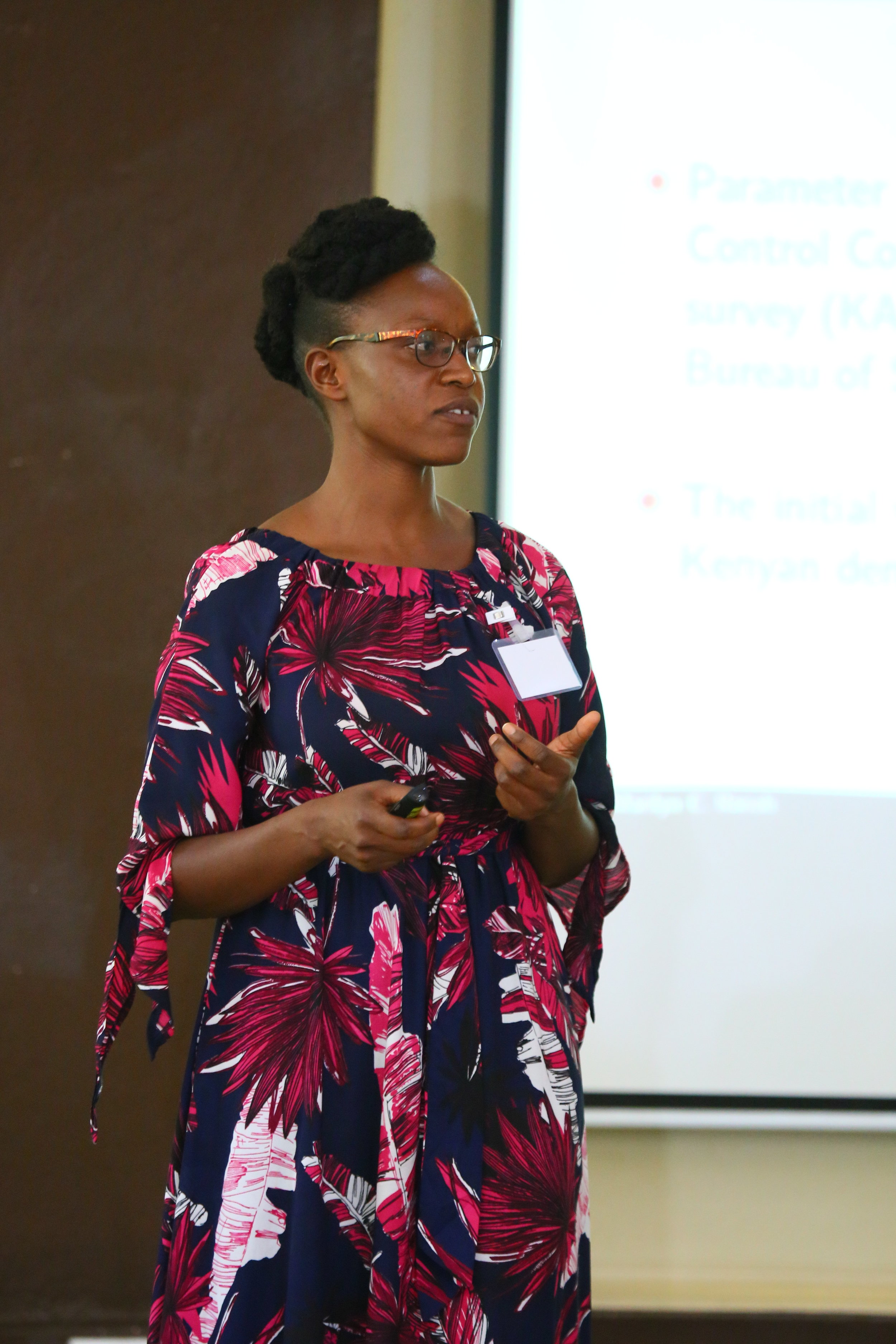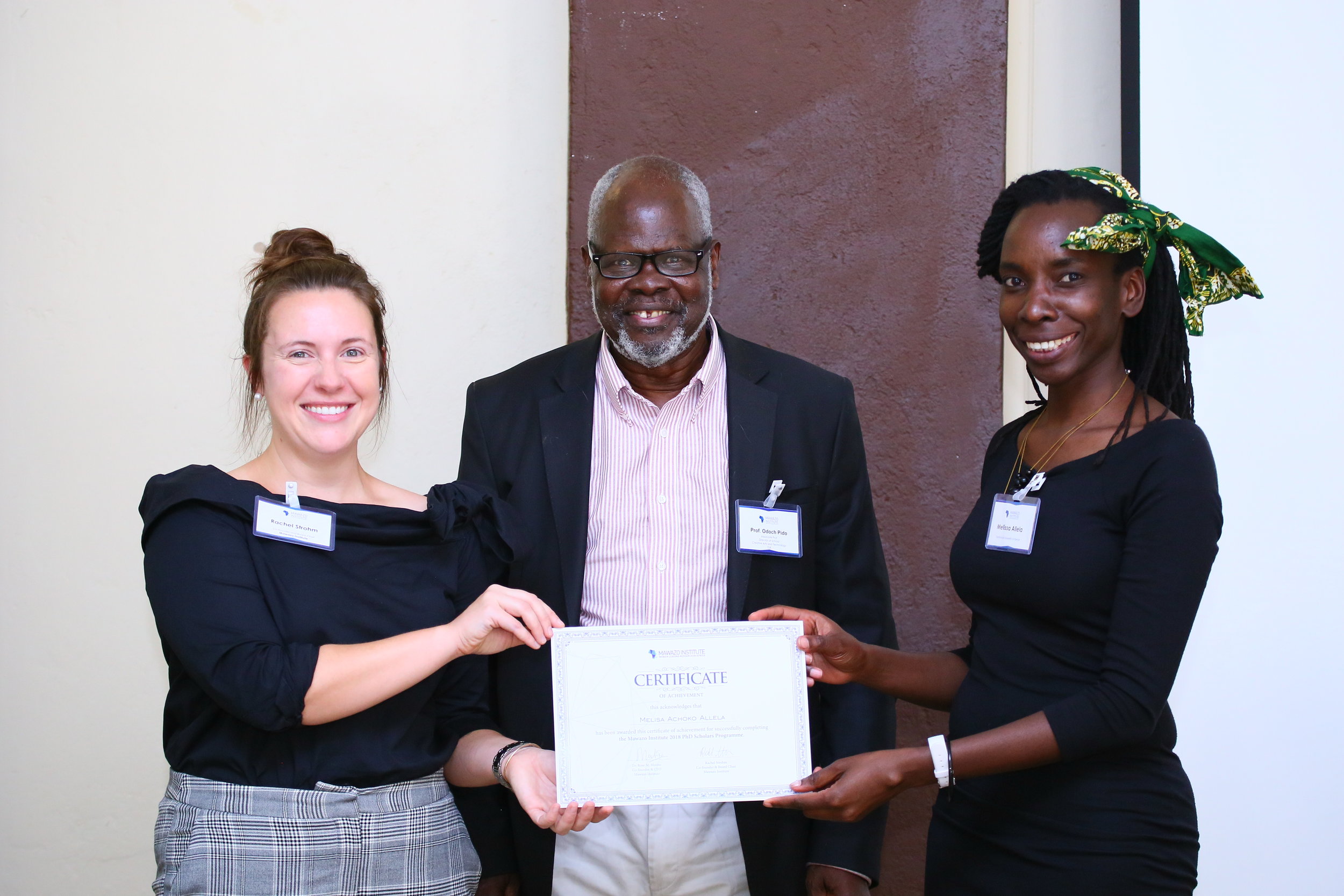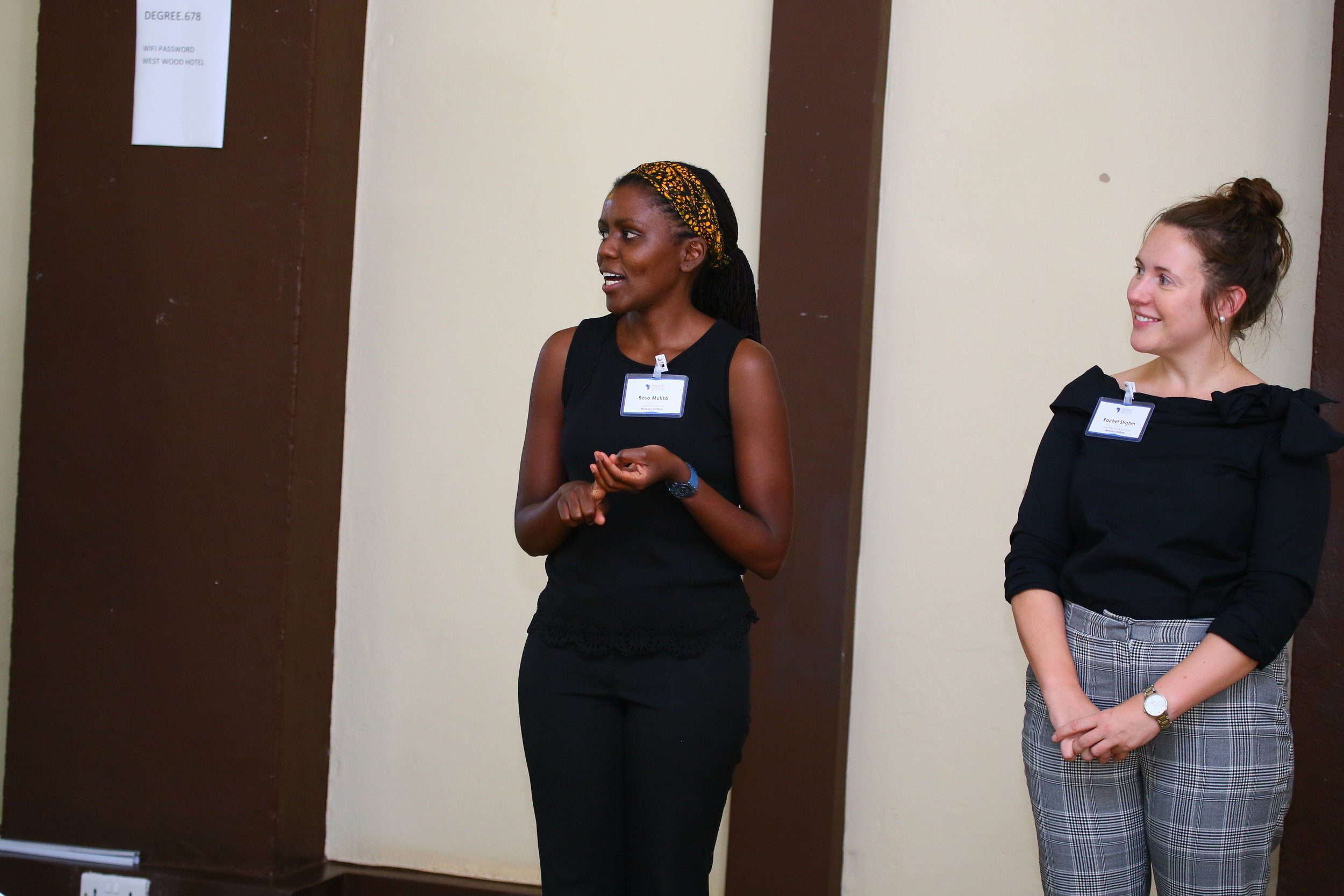Mawazo Institute Research Symposium
Author: Naliaka Odera
On February 28th 2019, Mawazo Institute held a day-long research symposium marking the culmination of the year’s efforts to support and mentor 10 female Kenyan doctoral students. Dr. Rose M. Mutiso, co-founder and CEO of Mawazo, began the event by explaining Mawazo’s guiding principles and history.
“Given the immense talent on the continent, why aren’t there more African scholars in the global research community? And what are the implications of this gap on Africa’s ability to develop homegrown solutions to pressing development challenges?” she and co-founder Rachel Strohm had asked each other when they were still undergraduate students in the United States, she explained. “What would happen if we did our small part to try and change this by giving African women resources and support to do their work?” They wondered.
In the last year, Mawazo did just that: They selected an inaugural cohort of 10 Mawazo PhD Scholars out of a pool of over 170 applicants, a group of talented women all under the age of 40 who are currently completing doctoral studies in Kenya. During the year, Mawazo organized in-house trainings, funded conference travel and external trainings, and subsidized research and equipment budgets. But beyond the financial support the Institute afforded its PhD Scholars, what became clear throughout the day was the level of community that had been fostered. The symposium was attended by the 10 Mawazo PhD Scholars and their supervisors, Mawazo staff, and representatives of various university and research programs.
“We all have the same goals here,” Dr. Mutiso stated, “to see more women in research, to see higher quality research and to see more relevant research.” This theme carried on in the keynote speech delivered by Prof. Mary Abukutsa, Deputy Vice Chancellor of Research Production and Extension at Jomo Kenyatta University of Agriculture and Technology (JKUAT). Titled, “How to Succeed Without Being a Genius,” Prof. Abukutsa referenced ‘The Seven Habits of Highly Successful People’ by Stephen Richards Covey and urged the Scholars to take on effective habits to proactively design the careers they want to have. “Whatever your mind thinks you can be, you will be,” she told the Scholars.
Scholars then took turns sharing their diverse research projects and findings with attendees. Presentations were ordered based on thematic areas, starting with three scholars conducting research in the social sciences. Jacqueline Owigo, of USIU, started the day with her prescient research looking at the sustainability and conditions of forced returnee migrants from across the globe back to Somalia. Both from the University of Nairobi, Winnie Adhiambo looked at the impact of acute diseases on labour supply in Kenya, and finally Susan Gichuna outlined her proposal to study the impact of weather and climate variability on urban commuter travel behaviour in downtown Nairobi.
Attendee Dr. Irene Awuor Owuor from Kenyatta University emphasized, “we have come to add value here” and value add she did. Supervisors, Mawazo team members and representatives from across various fields of research and science all contributed to critiquing, praising and refining the projects and the Scholars’ presentation skills.
The next set of presenters were all conducting their research in STEM-related fields, ranging from agriculture to computer animation. Judith Koskey from Egerton University shared her work on assessing the effects of land use on water quality and macroinvertebrate abundance diversities in the Njoro and Kamueti Rivers. In the area of horticulture, Teresiah Njihia from JKUAT outlined her lab and field evaluation of a trapping system for the control of the Antestia Bug, a damaging pest in coffee production in the East African region. Peris Ambala of Kenyatta University led us through her methods of determining the molecular characteristics of filoviruses in humans, primates and rodents in Laikipia and Turkana. Marilyn Ronoh, from the University of Nairobi, introduced many in the room to the concept of mathematical modelling which she used to study the relationship between HIV awareness and the recent increase in HIV transmissions among young people.
For Edinah Song’oro from the Pan African Institute for Basic Sciences Technology and Innovation within JKUAT, her work looking at the occurrence and dynamics of antimicrobial resistance genes in Nairobi and Naivasha was deemed trailblazing by an attendee. Building on the theme of groundbreaking work, Elizabeth Benson from the Computer Science department of JKUAT took the room through her research, a predictive analysis for minimization of Nairobi city traffic congestion. Finally, Melisa Allela from the Technical University of Kenya shared her fascinating work in storytelling through experimental animation where she is attempting to incorporate the traditions of African oral storytelling into virtual reality platforms.
As the inspirational day came to a close, many supervisors and Scholars paused to emphasize just how vital Mawazo’s support had been throughout the past year. In many instances, Scholars reported, the support they received had made the difference between their research getting off the ground and stalling. After the closing awards ceremony, Elizabeth Benson, a Scholar, surprised the Mawazo team by imparting final words of gratitude, “As scholars, we decided not to let you down.” Warm applause filled the space as what Mawazo had managed to accomplish cemented itself. It had become more than a scholarship program, Mawazo had become a family of Scholars, experts and professionals, building towards a brighter future for women in science.
